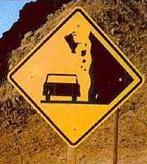So what is "not so obvious" about this lesson. Let me start with the more radical ideas I have, and then dive into my more basic principals. First, I think companies should strive to show revenue on Day One of the business. No more statements like "we should have our first customer in month 12" or "First revenue should hit, once we hit 10,000 users and we begin to monetize traffic". These are statements only a few people can make and be taken seriously in my book. I want to hear the entrepreneur say "Our goal is drive our primary revenue from X, but right now we believe we can sell Y until we are ready". To summarize - find a way to make money NOW! If you are a software company building a new product - try to find a customer willing to pay you to develop the product for them - or better yet - find a company with a similar product and resell their product until you are ready to sell yours. If you are a web-based business - think of creative ways to monetize users - and not depend on long-term traffic to drive revenue. By thinking "Money comes first" it will not only get you customers and pay the rent - but it will fine tune your business plan and ultimately may open your eyes to a a better idea.
Here are some other reasons why you need to change your business plan to focus on money first.
1.) Investors - if you want to raise money - the single most important thing an investor looks for is a proven business model. Which means you sold a service or product and someone paid for it. It is that simple. Investors who say "management team is number one" are either full of shit or are investing in people who sold their businesses to Google or Microsoft and are launching a new venture. When you are an above average entrepreneur - you need to focus on revenue.
2.) Customers - there is nothing more obvious - but I need to state the obvious - customers are the best way to turn your business "idea" into reality. Not because they give you money - but because they tell you what they want, and the allow you to focus on what is important, and forget the rest. It is shocking to me how many entrepreneurs launch a product or service without doing basic market research, like sending out a survey, or even talking to customers about the product. Research and Development should start with the customer, not end with the customer.
3.) Employees - we all know that the driving force in a startup are the few people that show up (usually underpaid or not paid at all) and rally around the vision of the company. For the first 12 months of any new venture - it lives and dies on the momentum and excitement that spawns from the employees. In my opinion, there is nothing more exciting then landing a customer. It is the fuel that will give employees the energy to work that much harder, and gives them a sense of security in what they are building.
4.) Entrepreneur - Lets be honest - every entrepreneur (no matter how much they believe in their idea) has some level of doubt. There is always one "IF" statement when describing a great idea. For the sake of sanity, and more importantly for the sake of not wasting 2 years of your life - make sure there is a market for your vision, and go get a customer to confirm your beliefs. It is hard enough being an entrepreneur - let alone a mind reader. Pick up the phone, call a customer and ask the questions. Don't be afraid of the answer.











